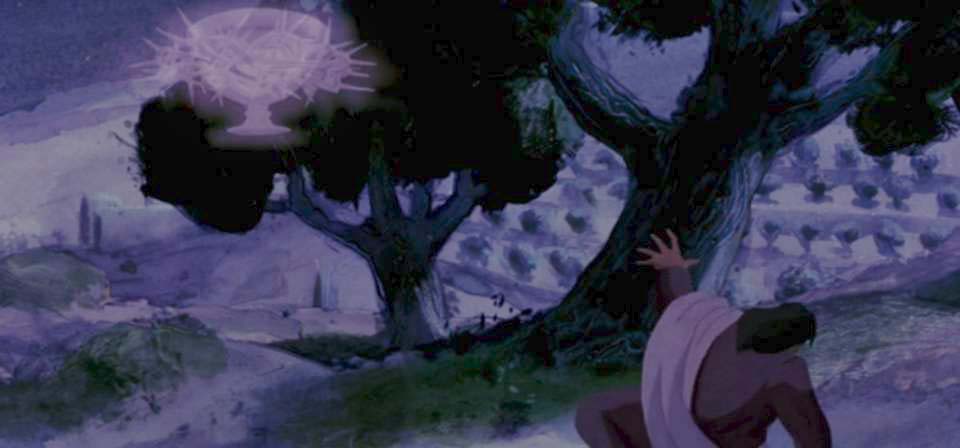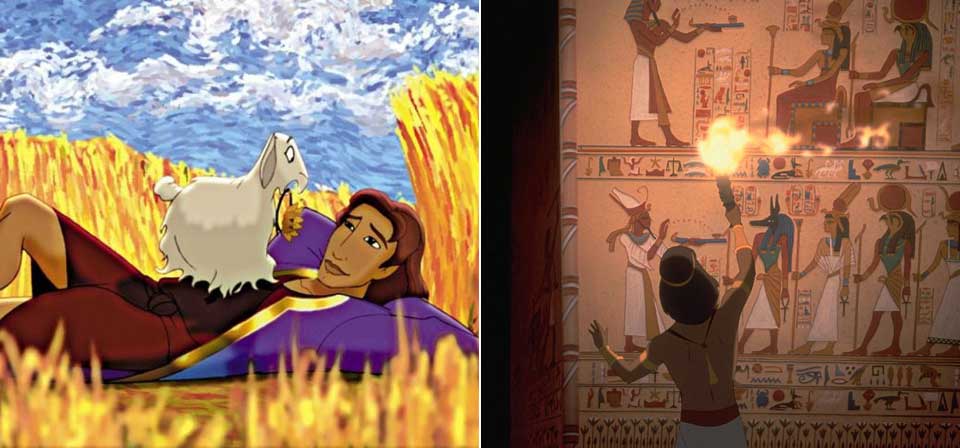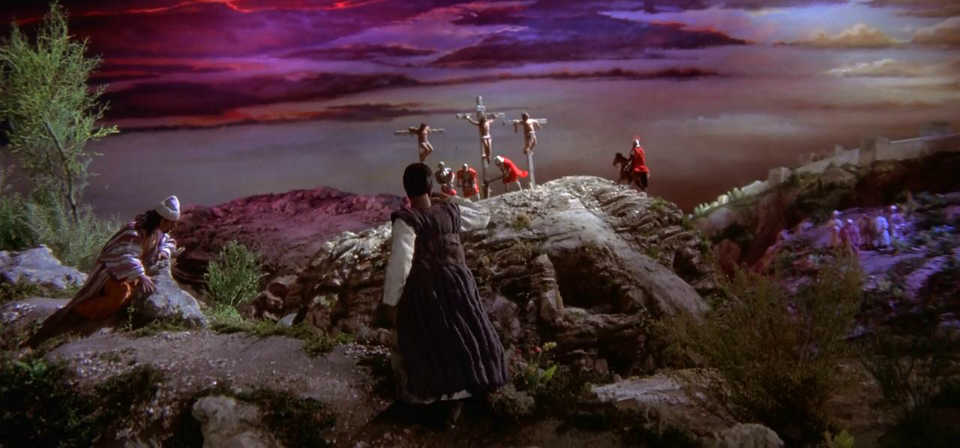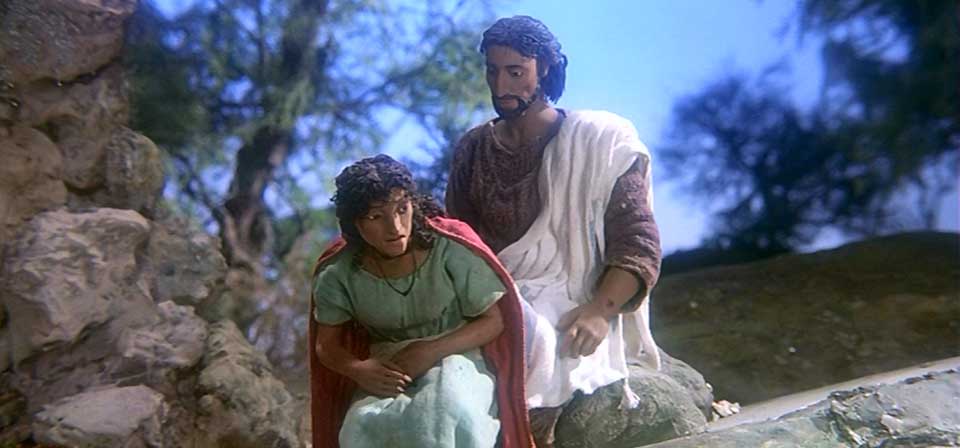Tags :: Animated Bible Stories

A Triduum ritual: The Miracle Maker
Our seasonal movie-watching during Advent, Lent, and the Christmas and Easter seasons varies from year to year, but Triduum is always the same.

DreamWorks’ animated Torah
During the second week of Advent, as we’re wrapping up Genesis and turning to Exodus, our family viewing often includes DreamWorks’ two animated Pentateuch movies: the Exodus movie The Prince of Egypt and its made-for-TV prequel, Joseph: King of Dreams.

Must-see Easter season viewing: The Jesus movie for absolutely everyone
The Miracle Maker is a singular achievement: a Jesus movie that is simple enough for children, sophisticated enough for scripture scholars and theologians, and artful enough for discerning cinephiles.
The Ten Commandments (2007)
Although less speculative and less freely adapted than the earlier film, The Ten Commandments shamelessly rips off interpretive conceits and even specific dramatic beats from The Prince of Egypt, from the menacing of Moses’ basket by a passing croc to the foundering of Ramses’ chariot on the shores of the Red Sea, allowing him to live to see the destruction of his army and the escape of the Israelites.
The Prince of Egypt (1998)
Witness the astonishing animation of scale at work in capturing the towering monuments of Egypt, or the host of departing Hebrews: few if any traditional animated films have ever captured the sheer sense of size in this film. Watch the subtle storytelling in an early scene as the infant Moses, caught up in the Queen’s arms, eclipses the toddler Ramses in her line of vision, leaving him standing there with outstretched arms; foreshadowing the rivalry and ultimately the enmity between the heir to the throne and his Hebrew foster brother. Notice the small details in those quiet numinous moments: the pebbles rolling back at Moses’ feet at the burning bush; the halo of clear water around his ankles as the Nile turns to blood; the horror of an Egyptian servant as the surface of the water bubbles and the first frogs begin to flop out of the river onto the palace stairs; an extinguished candle flame or an offscreen sound of a jar crashing as the destroying angel swirls in and out among the Egyptians.

The Miracle Maker (2000)
Fiennes sounds like a man improvising a public speech as he delivers long-familiar words about the house on the rock or the parable of the mustard seed. His Jesus is attractive, composed, commanding, and compassionate; he can rise to righteous anger (as at the cleansing of the temple), but has an acute sense of humor (seen particularly in satirical parables such as the log in the eye).
Joseph: King of Dreams (2000)
Joseph’s own dreams — the two biblical ones plus an extra one — are the best; I caught my breath at the first glimpse of these dreams, which look like living, flowing Van Goghs. The dream-sky swirls like Starry Night, and the grass ripples under the dream-Joseph’s feet like ripples in a pond. The dreamlike quality of these sequences is undeniable and memorable.
Recent
- Benoit Blanc goes to church: Mysteries and faith in Wake Up Dead Man
- Are there too many Jesus movies?
- Antidote to the digital revolution: Carlo Acutis: Roadmap to Reality
- “Not I, But God”: Interview with Carlo Acutis: Roadmap to Reality director Tim Moriarty
- Gunn’s Superman is silly and sincere, and that’s good. It could be smarter.
Home Video
Copyright © 2000– Steven D. Greydanus. All rights reserved.